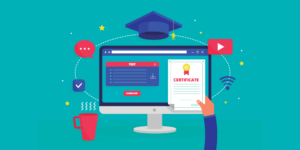How Bonus Questions Help Students Stay Motivated and Involved in Exams
Exams can be stressful, no matter how much struggle students put into learning. Every student has handled that moment of panic when an unpredicted question appears or when time starts to slip away. However, educators have found a clever and inspiring way to decrease that pressure — bonus questions.
Bonus questions may appear small, but their effect on student motivation, sureness, and engagement is powerful. They provide hope, add excitement to test-taking, and even encourage students to go the extra mile. With the accurate balance, bonus questions can transform examinations from unapproachable responsibilities into prospects for progress and learning.
In this blog, we’ll explore how bonus questions help students stay motivated, focused, and enthusiastic during exams — and how tools like exam help, help with online exam, and AI exam helper can support effective preparation.
What Are Bonus Questions in Examinations?
Bonus questions are extra opportunities given during examinations that allow students to earn additional marks beyond the standard total score. They are typically designed to test deeper understanding, creative thinking, or practical application of knowledge. For example, a math quiz might include a bonus question that challenges students to apply formulas in a new way, while a reading test could feature a creative question about interpreting a poem.
These questions are optional but enjoyable and stimulating for students who want to push beyond their comfort zone. Even those who might consider options like pay someone to take my HESI exam can benefit from attempting such questions, as they encourage genuine learning and confidence.
The Purpose of Bonus Questions
The goal is not just to reward top performers — bonus questions encourage every student to attempt something new without fear of losing marks. They help build flexibility, decrease nervousness, and create a sense of fairness. Students see them as chances to recover from mistakes or boost their scores, inspiring them to stay involved throughout the whole examination.
The Psychological Power Behind Bonus Questions
Bonus questions work because they tap into students’ emotions and mindset. Exams are not only about information — they also test patience, focus, and self-belief. When students see bonus queries, they experience a delicate shift in their mind from fear to interest.
Reducing Test Concern
Test burden repeatedly leads to mental blocks and anxiety of disappointment. Bonus questions act as tension relievers, signaling to students that the test is fair and has room for flexibility. This helps students relax and think more clearly, refining their performance.
Building Sureness
Students learn that even trying bonus questions has some good things about it. They might not get it all right but doing it at all helps raise their self-worth. Bumps in self-worth build up over time and let students go into tests with a more rich attitude.
Inspiring Effort and Perseverance
Bonus questions reward extra effort. Knowing that there’s a chance to earn bonus marks inspires students to give their best until the very end. This determination builds discipline — a dynamic skill for lifelong knowledge.
How Bonus Questions Encourage Active Learning
Bonus questions are more than just “extra marks.” They motivate active learning — a process where students participate extremely with content instead of passively remembering it.
For example, when students prepare for examinations knowing that bonus questions might appear, they study beyond the essentials. They review additional examples, discover real-world applications, and connect thoughts artistically.
This habit transforms their learning experience. Instead of shoving just to pass, they start to consider how things work, which improves long-term preservation.
A Minor Step Toward a Growth Mindset
Bonus questions backing what psychologists call a development mentality — the belief that capabilities can improve through effort. Students with a growing outlook see bonus questions as challenges to learn from, not as difficulties. This shift in mindset leads to stronger motivation and a deeper love for learning.
Making Exams More Pleasurable and Attractive
Exams, as most of you know, are normally times of great stress. They are big and tough. Bonus questions bring some joy and fun. Students do not think, “If I get this one wrong, I am doomed.” Instead, they think, “Let’s see if I can get this one right.”
This subtle change can turn exam-taking into a more attractive experience. Educators who use bonus questions cleverly notice that students stay focused longer and contribute more aggressively in discussions afterward.
Imaginative Bonus Questions Catalyst Curiosity
The best bonus questions are creative. They might connect the exam topic to real-life situations, current trends, or even puzzles. For instance:
- In a biology exam: “If humans could photosynthesize, how would our diet and lifestyle alter?”
- In a physics test: “How would gravity affect time if Earth’s mass rapidly gathered?”
Such questions stimulate imagination, serious thinking, and real-world associates — important elements of meaningful education.
How Bonus Questions Improve Learning Consequences
Bonus questions not only keep students involved — they also improve learning results in numerous measurable ways.
Encouraging Comprehensive Study Behaviors
When students know there might be bonus questions, they study more largely. They don’t limit themselves to what’s “likely to come.” Instead, they dive into deeper topics, improving both thoughtfulness and memory.
Reinforcing Key Perceptions
Bonus questions often comprise applying previously learned ideas in new ways. This helps reinforce and deepen understanding. For example, a bonus question might combine two different math topics, helping students see how they connect.
Promoting Problem-Solving Skills
Because bonus questions are less predictable, they train students to think judgmentally and adapt quickly — key skills not only for exams but also for future professions. Students learn to stay peaceful under uncertainty, which is priceless in real-world challenges.
The Role of Technology in Current Exam Preparation
In today’s digital era, students have access to advanced learning support tools that make exam preparation more well-organized and collaborative. Services such as exam help, help with online exam, and AI exam helper are changing how students prepare for challenging tests.
What Is “Exam Help”?
Exam help platforms provide guided support for students who want assistance to understand hard topics, practice questions, or prepare for online exams. These services often include mock tests, study direction, and real-time teaching.
Many students also look to hire someone to take online proctored exam when they need expert guidance or technical support for complex subjects. By using such tools, students gain confidence and improve their chances of handling bonus questions excellently because they practice thinking beyond standard textbook examples.
How “Help with Online Exam” Makes Learning Suitable
With the increase of virtual classrooms and digital assessments, many students search for help with online exam to navigate complex setups and technical challenges. Online assistance certifies students can focus on learning rather than worrying about unfamiliar interfaces or time restrictions.
Students stay on track and ready for the real thing with these and watching them grow through instant comments after the test and following how they improve.
The Power of an AI Exam Helper
An AI exam helper uses smart algorithms to personalize preparation. It can recommend weak areas to improve, generate practice questions similar to bonus ones, and even simulate real exam environments.
This type of intelligent examination support reduces trauma, builds confidence, and motivates students to study cleverer — not tougher.
How Educators Can Use Bonus Questions Efficiently
Even though bonus questions may serve a good purpose when applied properly, teachers can come up with better methods that will help learners instead of making things worse for them.
Bring Into Line with Learning Purposes
Bonus questions should drive home key issues and not veer greatly from what’s been taught. When they match what’s wanted from this course, students treat them as something they can do to test their learning.
Balance Difficulty Levels
Most effective is a blend of simple and hard bonus questions. The simpler give all the students reason to give it a shot, and the more demanding stretch the best students.
Provide Clear Instructions
Students should know how much each bonus question is worth and whether partial credit is possible. Clearness decreases nervousness and encourages equality.
Offer Feedback
After the exam, discussing bonus questions in class helps students understand creative problem-solving methods. It turns the exam into a meaningful learning opportunity.
The Emotional Connection Between Effort and Reward
Motivation in education often comes down to feeling that effort is rewarded. Bonus questions strengthen this emotional connection. When students understand their hard work and curiosity can lead to extra points, they associate effort with achievement.
This emotional reward encourages constant study habits and flexibility. Even professionals preparing for certifications often seek guidance or pay someone to take PMP exam simulations to test their readiness — a reminder that learning isn’t just about grades or scores, but about discovering ideas and growing their skills through consistent effort.
Real-Life Examples: Bonus Questions in Different Topics
Bonus questions can be applied across all subjects, from science to literature. Let’s look at a few examples:
- Mathematics: Asking students to apply formulas to a real-world problem (e.g., optimizing a delivery route).
- History: Asking students to imagine how history might have changed if a key event had a different outcome.
- Science: Manipulative simple research to test a hypothesis.
- English Literature: Rendering a poem through a current viewpoint.
Each example promotes higher-level thinking and creativity — the essence of education.
The Long-Term Benefits of Bonus Questions
Bonus questions don’t just affect one exam; they shape the way students learn and think over time.
Building Lifelong Learning Habits
Students who see bonus mode questions often get interested in seeing stuff and liking doing it. They only begin to pose more questions at class and outside class.
Preparing for Modest Examinations
Bonus-style thinking trains students to approach unpredicted questions in competitive examinations serenely. This readiness makes them more adaptable test-takers.
Enhancing Creativity and Serious Thinking
Bonus questions turn on your brain power — the key to school success and a good job.
The Future of Exams: Combining Bonus Questions with AI Support
The future of education is growing speedily. With tools like AI exam helper and help with online exam, bonus questions can become even more energetic and personalized. Imagine AI systems analyzing students’ progress and generating custom bonus questions that target their weak spots or stretch their creative thinking. Such a system would make exams not only more attractive but also more academically effective.
As students increasingly look for smart support systems that can guide them — whether they need to pay someone to take TOEFL exam or simply want advanced practice tools — technology can confirm that no student feels left behind and every learner gets the accurate balance of challenge and encouragement.
Practical Guidelines for Students to Handle Bonus Questions
- Stay Peaceful and Curious: Treat bonus questions as chances to explore, not as complications.
- Read Carefully: Bonus questions often exam clarification — read every word carefully.
- Think Creatively: There’s often more than one way to solve a bonus problem.
- Use Logical Reasoning: Even if you don’t know the answer, clarify your thought process undoubtedly.
- Prepare Generally: Use resources like exam help platforms and AI exam helper tools to strengthen understanding beyond the fundamentals.
- Review Past Papers: Recognize patterns in bonus question styles.
- Practice Time Organization: Save a few minutes at the end of your exam for bonus attempts.
These habits not only improve exam performance but also make studying more pleasurable and less traumatic.
Conclusion
Though Bonus questions may appear as a minor part of exams, they have serious impacts on student interest, motivation, and learning in a great way. They balance between push and break, and allow students to put up a show of the art and hard work.
When paired with up-to-date tools such as exam help, help with online exam, and AI exam helper, students gain the support they need to tackle bonus questions surely and develop long-term learning skills.
At last, bonus questions bring us back to the heart of what education is really about – the search for knowledge, development and thrill of the fresh. They promote pupils to get inspired, work harder and count on them to be great. Also, in a society where tests can appear to be demanding, the extra shot at brilliance means a great deal.







